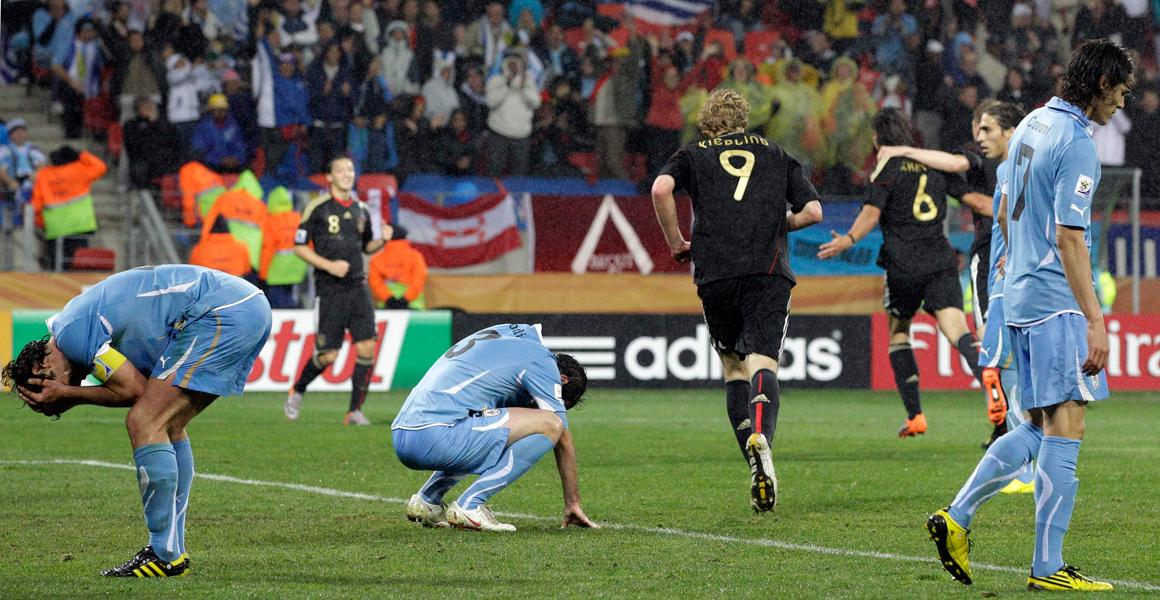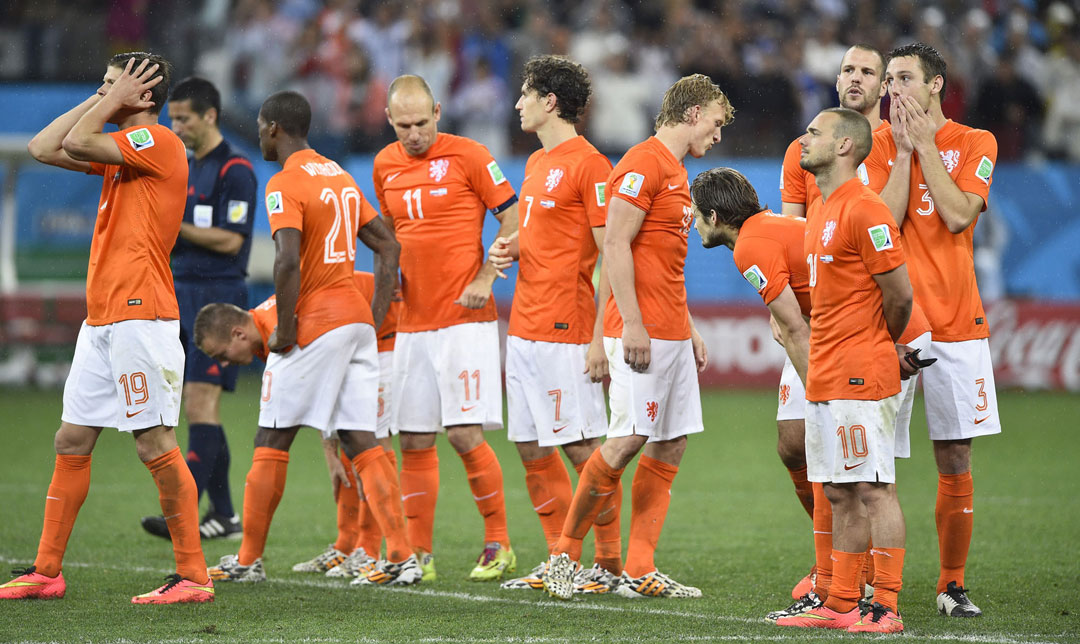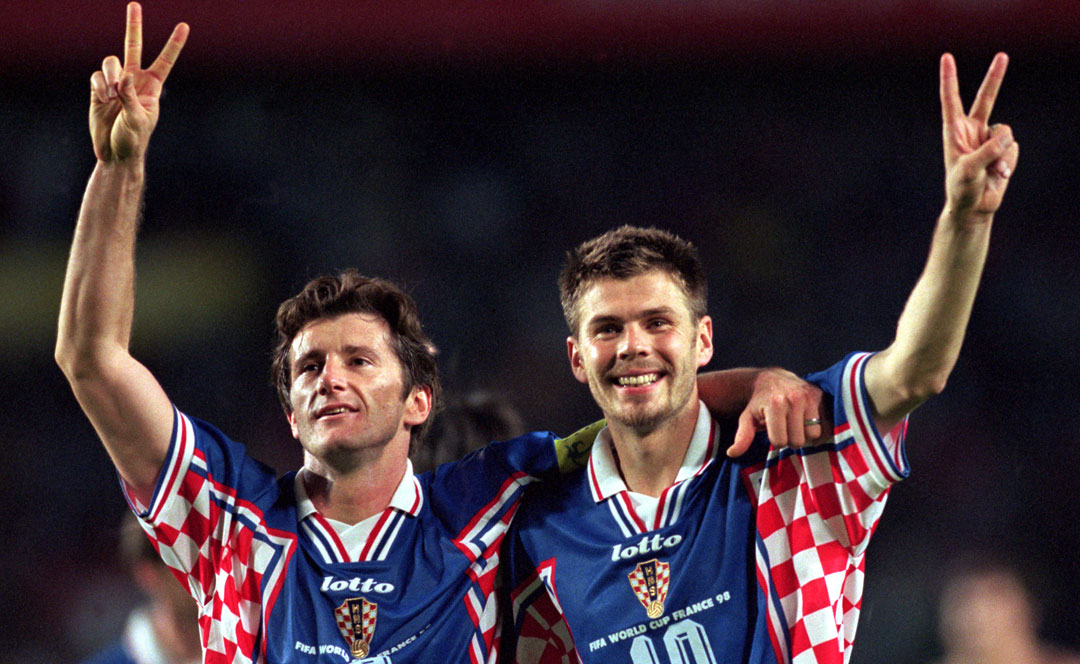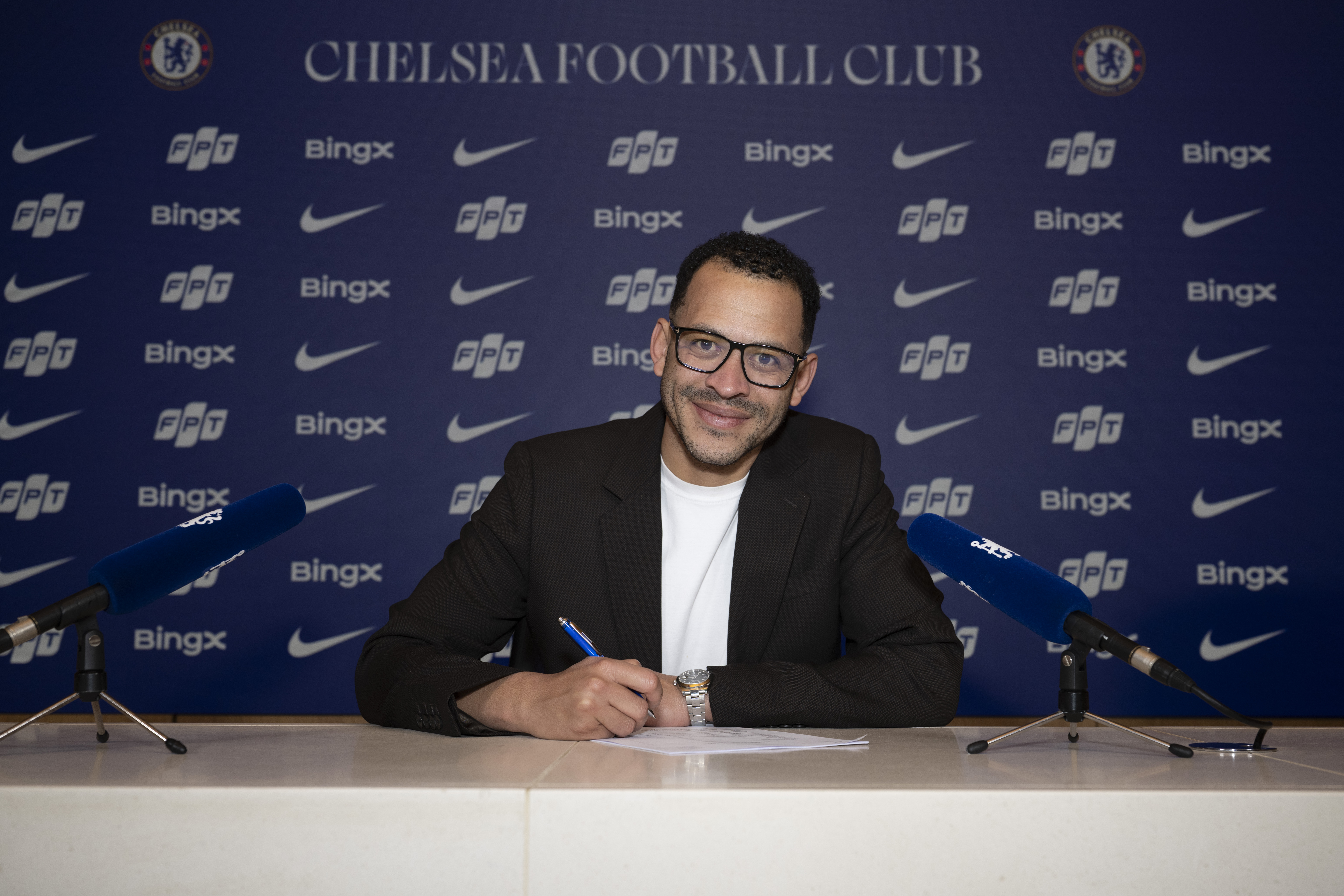Why everything you think about the third-place play-off is wrong
It's cast aside as the game no one – especially the two teams involved – cares about. Matt Allen tells you why the apathy just won't wash...

The best features, fun and footballing quizzes, straight to your inbox every week.
You are now subscribed
Your newsletter sign-up was successful
Want to add more newsletters?

Five times a week
FourFourTwo Daily
Fantastic football content straight to your inbox! From the latest transfer news, quizzes, videos, features and interviews with the biggest names in the game, plus lots more.

Once a week
...And it’s LIVE!
Sign up to our FREE live football newsletter, tracking all of the biggest games available to watch on the device of your choice. Never miss a kick-off!
Join the club
Get full access to premium articles, exclusive features and a growing list of member rewards.
It was so nearly the game everyone wanted to see: Brazil vs Argentina, one of football’s greatest grudge matches played out in a third-place decider. A match underpinned by years of political rivalry and the prevailing winds of misery and disappointment; the play-off with more than just a token prize and patronising handshake from Sepp Blatter at stake. On paper, this could have been Fight Club.
Sadly this fantasy match-up was not to be, thanks mainly to the Netherlands' ineptitude at penalties. Had the course of history been different, however, this game would have been the only fixture in a list of World Cup play-off matches with the slightest semblance of public interest. Even Adrian Chiles might have mustered a smile.
Historically, third-place play-offs have, in the most part, been largely ignored affairs – by the armchair fan at least. In fact, such is the apathy to the occasion this time around that after a few rounds of ticket sales, seats for Saturday evening’s game in Brasilia remained available.
On the face of it, the reason for this apathy seems strange. In any other global sporting event, landing the title of Third Best On The Planet is something to be cherished, a badge of honour. Coming third in the Olympic 100 metres final, for example, is a monumental achievement, particularly if Usain Bolt is primed in the starting blocks. Even in beach volleyball – considered by many, wrongly, to be a joke sport – finishing third in London 2012 was a moment of sheer, unbridled ecstasy.
The best features, fun and footballing quizzes, straight to your inbox every week.
Big Mac, please
In World Cup terms, however, the bronze-bringer is an underwhelming non-event for players and fans, mainly because the pain of missing out on the ultimate prize is so bloody excruciating. A penalty shoot-out or a brief lapse of concentration is often the difference between racing across the pitch with a pair of shorts around your ankles, or falling to the turf in sobbing in despair.
After a crushing blow like that, playing another game to decide third place seems like a cruel joke, particularly after the pain of losing in a semi-final. Perspective? Well, imagine blowing the penultimate round of Masterchef, only to have to fill another 30 minutes of air time by battling it out in a burger-making event. In McDonald's. Only then can you fathom the loathing that players – brutalised by tackles, the slings and arrows of fans and media, and disapproving comments from an entire nation – have for this kind of event. It’s the international football equivalent of water-boarding.

So why hold the thing in the first place? Well, while the exact reasons for the construction of this bizarre fixture remain unclear, the third-place play-off is considered by many to be a methadone for fans facing the unthinkable prospect of facing a full three days without football during a World Cup calendar. It fills the gap between the final and semis. No one has to go cold turkey, not on Sepp’s watch.
Reasons to be cheerful
It is, however, a stop gap that has occasionally piqued the local interest. At USA ’94, a whopping 91,500 punters crammed themselves into the Rose Bowl to watch Sweden thrash Bulgaria, 4-0. Four years earlier 51,000 attended the game between Italy and England in 1990, though this was much to do with the fact that the home nation were involved.
There are also personal ambitions to be fulfilled in these games, particularly for players of goalscoring intent. Traditionally, these play-offs have been entertaining clashes. Goals aren't at a premium, and a number of high-scoring results have taken place – think Germany’s 3-2 win over Uruguay in 2010 and the ding-dong affair between Turkey and South Korea in 2002. In 1958, France walloped Germany 6-3. The gloves, along with the pressure, tend to disappear.
Meanwhile, players with one toe in the Golden Boot battle often approach play-offs with the scent of blood in their nostrils. And with good reason, too. Their opponents might by emotionally fragile and physically shot; chances will open up in the closing stages owing to the fatigue of a long tournament. In 1990, Salvatore Schillaci grabbed the goals he needed to win the individual accolade. Likewise Thomas Muller (2010) and Davor Suker (1998), and further back the Brazilian bicycle-kick inventor Leonidas (1938).

1934 Germany 3-2 Austria
1938 Brazil 4-2 Sweden
1958 France 6-3 W Germany
1982 Poland 3-2 France
1986 France 4-2 Belgium
1994 Sweden 4-0 Bulgaria
1998 Croatia 2-1 Holland
2002 Turkey 3-2 South Korea
2006 Germany 3-1 Portugal
2010 Germany 3-2 Uruguay
And then there’s emotional pride. One presumes that Brazil's players will feel they owe a debt of gratitude to fans currently suffering from their most humiliating result in history. Individually, there’s also a number of players trying to come off the naughty step, particularly Fred and £50m (fifty million!) David Luiz. This match might go some way to finding salvation. In 2006, Germany's Oliver Khan - recently demoted to back-up goalkeeper - used to fixture to say his farewells, as captain, on home soil.
Try telling him that the third-place play-off means nothing. Try telling the Sweden players of 1994, who enjoyed a fighter-plane escort upon landing and later a reception of millions on the streets of Stockholm after battering Bulgaria 4-0 to win bronze. Try telling South Korea, who were defeated on home soil in 2002, to forget about it. Sometimes third-place play-offs do mean something, just as long as the emotional investment is high. So Brazil should come out fired up. And woe betide them if they don’t.
 Join The Club
Join The Club










